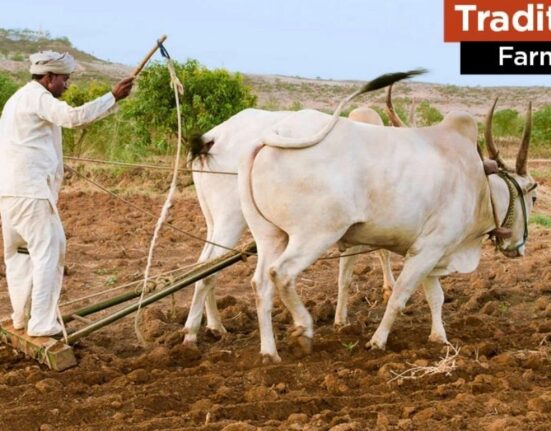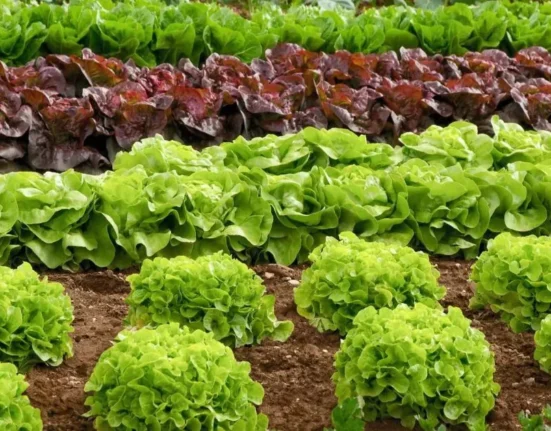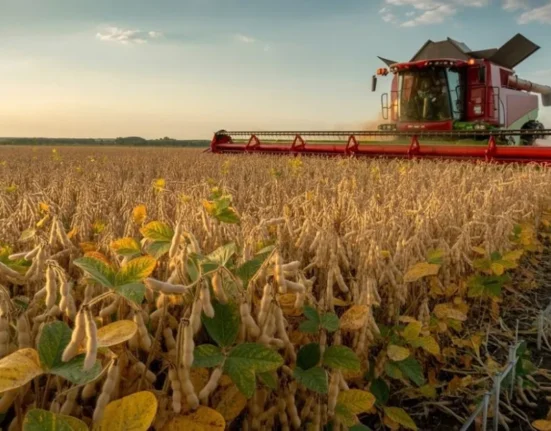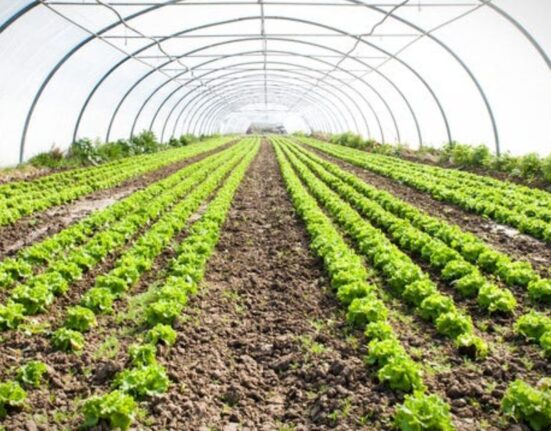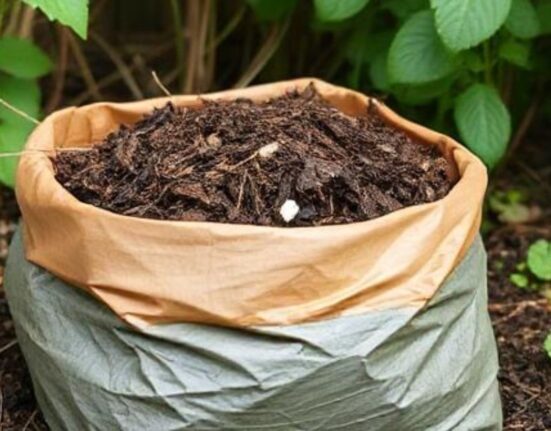Organic farming is an agricultural approach that prioritizes sustainability, environmental health, and the well-being of both consumers and farmers. By avoiding synthetic chemicals and fertilizers, organic farming emphasizes the use of natural processes to maintain soil fertility, control pests, and promote biodiversity. Effective organic farming methods, such as crop rotation, composting, and the use of organic pesticides, enhance the resilience of ecosystems and improve long-term soil health. These practices produce healthier crops and reduce the environmental impact of farming, contributing to a more sustainable food system. This introduction explores key organic farming techniques and their role in ensuring sustainable growth, balancing food production, and ecological preservation for future generations.
Principles of Organic Farming
Organic farming is based on principles that promote environmental sustainability, biodiversity, and soil health. It avoids synthetic pesticides and fertilizers, relying on natural methods such as crop rotation, composting, and biological pest control. Organic farmers use techniques to maintain soil fertility, like green manuring and organic mulching. The goal is to produce food in harmony with nature, ensuring ecological balance and reducing the environmental impact of agriculture. It emphasizes local, sustainable production, animal welfare, and the conservation of natural resources, promoting healthier ecosystems and safer food for Organic agriculture consumers.
Soil Health and Fertility Management
Soil is the foundation of sustainable agriculture, and maintaining its health is essential for long-term productivity. Effective soil management practices include crop rotation, cover cropping, composting, and reduced tillage to enhance soil structure, improve water retention, and increase organic matter. These practices support beneficial microorganisms, prevent erosion, and ensure the Composting techniques’ availability of essential nutrients for plant growth.
Biodiversity and Ecosystem Balance
A diverse ecosystem strengthens agricultural resilience by promoting natural pest control, improving pollination, and enhancing soil fertility. Biodiversity in farming systems includes maintaining a variety of crops, integrating agroforestry, and conserving natural habitats. These strategies help protect native species, support beneficial insects, and create a balanced environment Sustainable farming where plants, animals, and microorganisms coexist harmoniously.
Prohibition of Synthetic Chemicals and GMOs
Organic and sustainable farming strictly prohibit synthetic pesticides, herbicides, fertilizers, and genetically modified organisms (GMOs). This ensures food production remains free from harmful chemical residues while promoting natural alternatives such as biological pest control, organic composts, and natural soil amendments. Avoiding synthetic inputs also helps protect water sources, preserve soil integrity, and reduce environmental pollution.
Sustainable Resource Use
Sustainable agriculture emphasizes the Vermicomposting responsible use of natural resources such as water, soil, and energy. Efficient irrigation methods, renewable energy sources, and waste recycling contribute to long-term environmental conservation. By minimizing resource depletion and maximizing efficiency, farmers can produce food in ways that meet present needs without compromising the ability of future generations to do the what is transpiration in agriculture same.
Benefits of Organic Farming


Organic produce is free from harmful chemical residues, making it healthier and safer for consumers. It also supports environmental conservation by reducing water contamination and greenhouse gas emissions. Additionally, organic farming enhances farmers’ livelihoods by reducing dependence on expensive synthetic inputs and catering to the growing demand for organic products. Organic farming plays a vital role in protecting human health and the environment for future generations by preserving natural resources and promoting sustainable food systems.
Soil Management Techniques
Soil management techniques are essential for maintaining soil health, fertility, and productivity in agriculture and land conservation. These methods help prevent erosion, enhance soil structure, and improve water retention. Standard techniques include crop rotation, which prevents nutrient depletion, and cover cropping, which reduces soil erosion and adds organic matter. Mulching Green manure conserves moisture and suppresses weeds, while composting enriches soil with nutrients.
No-till farming minimizes soil disturbance, preserving its structure and reducing erosion. Contour plowing and terracing control water runoff, preventing soil loss in sloped areas. Agroforestry integrates trees and crops to enhance biodiversity and soil stability. Proper soil testing ensures balanced nutrient application, while organic amendments improve soil health naturally. Sustainable soil management enhances agricultural productivity while protecting the environment, ensuring long-term soil fertility and resilience against climate Crop rotation change.
Effective Organic Farming Methods
Organic farming focuses on sustainable and eco-friendly agricultural practices that enhance soil health, biodiversity, and productivity without synthetic chemicals. Key methods include crop rotation, which prevents soil depletion and controls pests naturally, and composting, which enriches the soil with essential nutrients. Cover cropping helps prevent erosion, retain moisture, and improve soil fertility. Natural pest control methods, such as introducing beneficial insects and using organic repellents, reduce dependency on chemical pesticides. Mulching conserves moisture, suppresses weeds, and enhances soil structure. Integrated livestock management allows animals to contribute to soil fertility through manure while ensuring ethical and sustainable animal husbandry.
Water conservation techniques, such as rainwater harvesting and drip irrigation, also enhance efficiency. These methods promote environmental sustainability, improve crop yields, and provide healthier produce while maintaining the long-term viability of farming lands. Adopting these practices ensures that organic farming remains productive, eco-friendly, and resilient against climate change.
Crop Rotation
Crop rotation is the practice of growing different types of crops in the same area across multiple seasons. This method improves soil fertility, reduces pest and disease cycles, and enhances crop yields. For example, alternating legumes with cereals helps naturally restore nitrogen levels in the urban farming soil.
Composting and Organic Manures
Compost and organic manure are essential aspects of organic farming. Decomposing plant residues, kitchen waste, and animal manure creates compost. It enriches the soil with nutrients, enhances microbial activity, and improves soil structure. Popular organic fertilizers include cow dung, green manure, and vermicompost.
Conservation Tillage
Conservation tillage minimizes soil disturbance by reducing plowing. This method helps retain soil moisture, prevent erosion, and maintain organic matter. No-till and reduced-till farming practices are commonly used in organic agriculture. Cover crops like clover and rye are planted during off-seasons to prevent soil erosion and suppress weeds. These crops also enhance soil fertility by adding organic matter and fixing nitrogen.
Agroforestry and Polyculture
Agroforestry integrates trees and shrubs into farming systems, offering shade, wind protection, and soil enrichment. Polyculture, the practice of growing multiple crops together, enhances biodiversity and reduces pest outbreaks. Raising animals organically involves providing natural feed, allowing access to pastures, and avoiding antibiotics and growth hormones. Well-managed organic livestock farming improves soil fertility through manure application and rotational surface irrigation grazing.
Sustainable Weed Management
Organic farmers use methods such as mulching, flame weeding, and hand weeding to control weeds naturally. Cover crops and crop-integrated pest management (IPM) rotation also help suppress weed natural pest control growth.
Pest and Disease Control
Pest and Disease Control manages harmful organisms that affect crops, livestock, and human health. It involves various techniques, including biological, chemical, and cultural methods, to prevent or minimize damage caused by insects, rodents, fungi, bacteria, and viruses. Integrated Pest Management (IPM) is a sustainable approach that combines natural predators, resistant crop varieties, proper sanitation, and targeted pesticide use to reduce reliance on chemicals.
Early detection and monitoring are crucial to prevent outbreaks and economic losses. Proper irrigation, crop rotation, and organic treatments help maintain plant health in agriculture. For livestock, vaccinations, hygiene, and quarantines prevent disease spread. Safe pest control methods protect human health and property in homes and urban areas. Effective pest and disease control enhances food security, promotes environmental sustainability, and ensures healthier living conditions.
Water Conservation and Management


Governments, industries, and individuals must work together to minimize pollution and overuse. Educating communities about responsible consumption can help preserve this vital resource. By adopting innovative water practices, we can maintain ecological balance, support agriculture, and ensure clean drinking water. Effective conservation and management are key to addressing water scarcity and securing a resilient future.
Efficient Irrigation Systems (Drip Irrigation, Rainwater Harvesting)
Efficient irrigation systems like drip irrigation and rainwater harvesting are crucial for sustainable water management in agriculture. Drip irrigation delivers water directly to the roots of plants, minimizing evaporation and runoff, ensuring precise water distribution, and reducing water wastage. On the other hand, rainwater harvesting involves collecting and storing rainwater for agricultural use, which reduces dependency on conventional water sources and provides a more eco-friendly, cost-effective solution for irrigation, especially in water-scarce regions.
Soil Moisture Retention Techniques
Soil moisture retention is key to maintaining healthy crops and conserving water. Techniques such as mulching, where organic or synthetic materials are used to cover the soil, help to reduce evaporation, moderate soil temperature, and prevent erosion. Additionally, adding organic matter, like compost, improves soil structure and increases its ability to retain moisture. Implementing these techniques conserves water and enhances soil fertility, making it an essential part of sustainable Organic crop production farming.
Reducing Water Waste and Runoff
Reducing water waste and runoff is vital for preserving water resources and preventing soil erosion. Strategies to minimize water waste include optimizing irrigation schedules, using weather data to predict water needs, and maintaining irrigation systems to avoid leaks. Additionally, contour plowing or terracing in fields can help reduce runoff, allowing water to be absorbed by the soil instead of flowing away. These measures contribute to more efficient water usage and help protect the environment from the adverse effects of excessive runoff, such as nutrient loss and water pollution.
Market Access and Certification
Market access and certification are essential for businesses seeking to enter new markets and ensure compliance with industry regulations. Conversely, certification involves obtaining official approval that a product, service, or system meets predefined standards, such as safety, quality, or environmental regulations. Certifications can be mandatory or voluntary, depending on the industry and target market. Achieving certification enhances credibility, ensures consumer trust, and facilitates smoother entry into international markets. Market access and certification help businesses expand their reach, improve competitiveness, and maintain compliance with global trade and regulatory frameworks.
Challenges in Organic Farming


Soil fertility maintenance requires careful crop rotation, composting, and organic fertilizers, which can be labor-intensive and costly. Additionally, organic certification is a complex and expensive process, making it difficult for small farmers to enter the market. Organic produce has a shorter shelf life, leading to storage and transportation challenges. Furthermore, consumer demand for organic products fluctuates, affecting market stability. High prices of organic goods can limit their accessibility. Despite these obstacles, organic farming remains vital to sustainable agriculture, promoting environmental conservation and healthier food production.
Conclusion:
Effective organic farming methods improve soil health, biodiversity, and food security and offer a path toward sustainable agricultural growth. By implementing practices such as crop rotation, composting, and integrated pest management, farmers can achieve long-term productivity while minimizing environmental impact. With proper support and market access, organic farming has the potential to revolutionize food production and promote a healthier planet.
FAQ:
What is Organic Farming?
Organic farming is an agricultural practice that avoids synthetic chemicals, pesticides, and fertilizers. It uses natural substances and processes to enhance soil fertility, control pests, and produce healthy crops while promoting environmental sustainability.
How does Organic Farming Support Biodiversity?
Organic farming encourages biodiversity by avoiding synthetic pesticides and herbicides that can harm wildlife and pollinators. Practices such as crop rotation, agroforestry, and maintaining natural habitats on farms provide diverse environments for plants and animals to thrive.
Is Organic Farming more labor-intensive than Conventional Farming?
Yes, organic farming can be more labor-intensive because it relies on manual methods for pest control, weeding, and maintaining soil fertility. However, the increased soil health and reduced dependency on synthetic inputs can lead to greater long-term sustainability and cost savings over time.
Can Organic Farming Feed the World?
While organic farming may not immediately replace conventional agriculture on a large scale, it can play a significant role in sustainable food production. By emphasizing local food systems, reducing food waste, and integrating regenerative practices, organic farming can contribute to food security in the long run.
Are Organic Farming Practices Scalable?
Many organic farming practices can be scaled up to more extensive operations. Precision farming, renewable energy use, and innovative irrigation systems are increasingly adopted in organic agriculture to increase efficiency and productivity.




